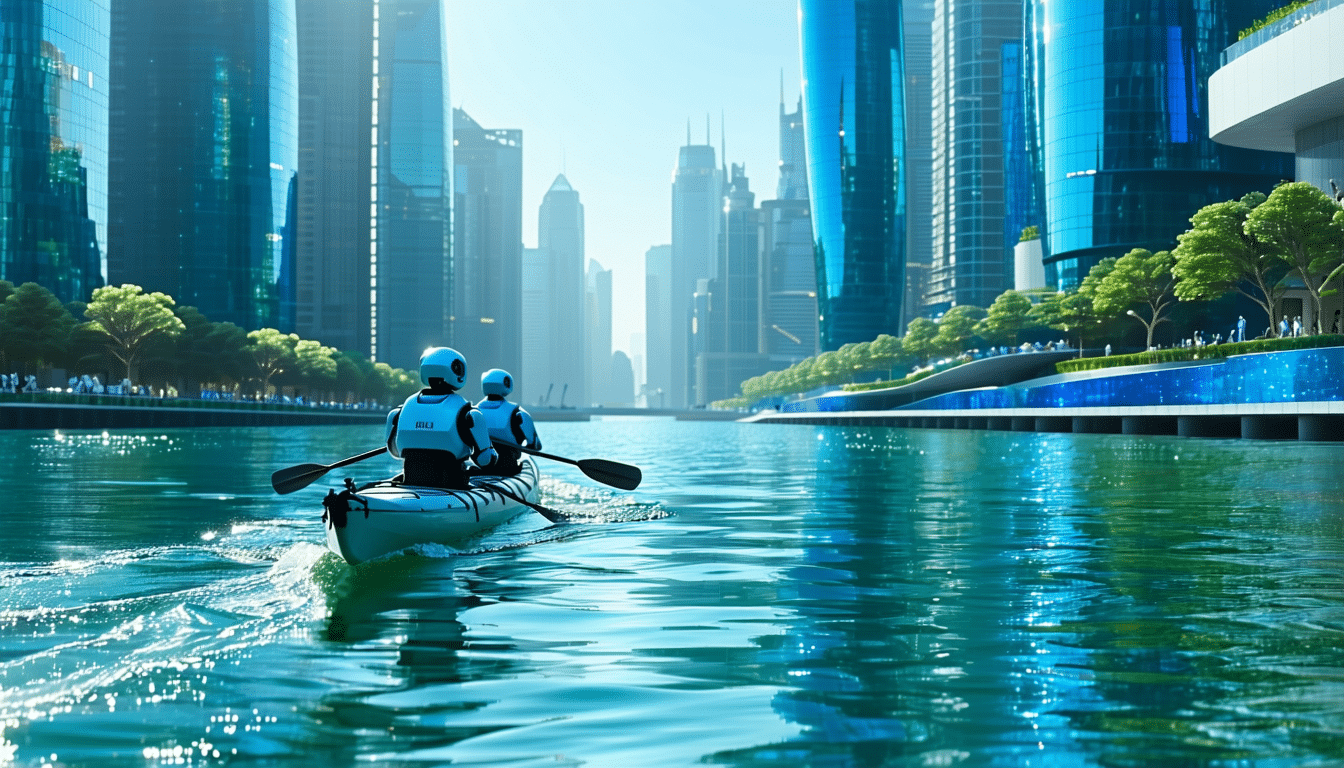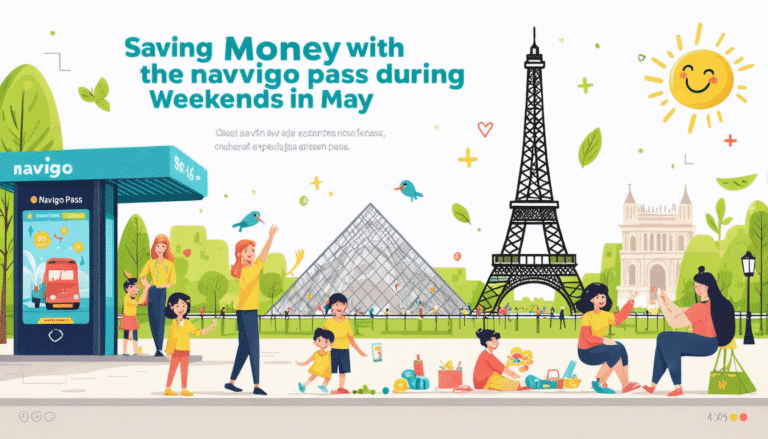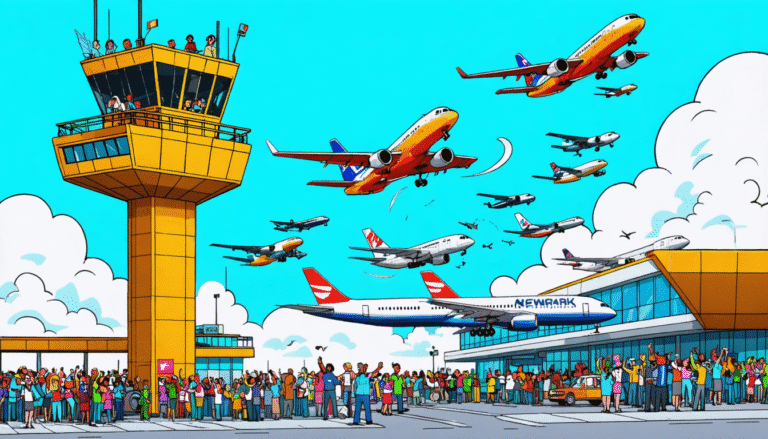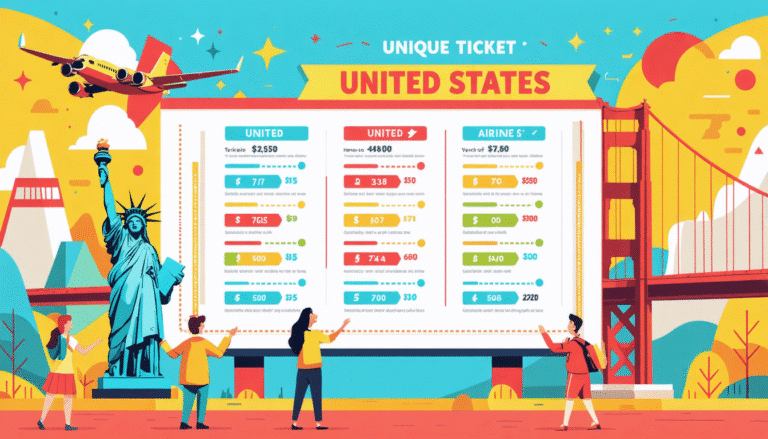KAYAK’s 2030 Travel Report reveals the unprecedented transformation of the sector. Artificial intelligence agents are redefining *the art of traveling*, navigating between personal aspirations and economic choices. The desire for city-hopping shines with the promise of a *multitude of experiences*. Technological innovation emerges as the catalyst for new consumer expectations, turning plural destinations into true fields of exploration and discovery. Travelers, more than ever, seek to harmonize cultural discovery and comfort. Captivating insights and bold predictions pave the way for an exciting future, where every odyssey becomes a tailor-made adventure. The need to optimize costs shakes traditional loyalties. The horizon of 2030 promises to be rich in opportunities for rejuvenation and diverse adventures, propelled by artificial intelligence.
| Main Trends | Details |
| Artificial Intelligence Agents | Virtual assistants will offer personalized itineraries and simplify bookings. |
| City Hopping | Travelers will prefer multi-destination trips to experience more. |
| Wellness-focused Travel | A strong demand for wellness retreats and aesthetic interventions. |
| Impact of Social Media | Social influences will affect travel bookings. |
| Low-intensity Travel | Preference for off-season trips for economical and less crowded experiences. |
| Virtual Experiences | VR technology to explore destinations before booking. |
| Spiritual Retreats | An increase in disconnect retreats and alternative therapies. |
| Evolving Loyalty Programs | Less interest in traditional rewards, favoring savings. |
Evolution of AI-based Travel Agents
By 2030, artificial intelligence assistants will transform the way travelers plan their journeys. These innovative virtual agents will provide personalized recommendations and create tailored itineraries. The growing use of these tools reveals a marked interest in experiences that are suited to each user’s preferences.
Research indicates that one-third of Americans seeking travel advice believes that AI can simplify the comparison of flight and hotel prices. By integrating sophisticated algorithms, these agents will become indispensable travel companions, making bookings more accessible.
City-Hopping: An Emerging Trend
Multi-destination travel, or *city hopping*, will gain popularity. By 2030, an increasing proportion of travelers will favor these adventures, captivated by the possibility of exploring multiple cities in a single trip. A survey reveals that 45% of Americans are already considering this form of travel.
The underlying motivations for this choice include the search for diversity during a trip as well as the quest for more economical options. The trend of exploring from one to five cities per trip could double in the coming years, thereby redefining tourism standards.
Wellness at the Heart of Travel
Another emerging aspect is the rise of wellness-centered getaways. By 2030, the value of a trip will often be evaluated through *wellness scores*. Travelers will prioritize amenities such as spas, pools, and other relaxation facilities, in response to an increased demand for rejuvenating vacations.
A particular phenomenon is the growth of *cosmetic-cations*, trips dedicated to aesthetic treatments. This concept, still marginal, could gain traction, with a growing number of people willing to consider treatments abroad for economic reasons.
The Role of Social Media in Travel
Social media now plays a central role in purchase decisions. Nearly half of Americans have already made bookings influenced by content on Facebook or Instagram. This trend, dubbed *Feedbooking*, could evolve into a dynamic travel purchasing platform by 2030.
Travel-related purchases, currently modest, could explode, transforming social media into true showcases for tourism offers. The connected nature of today’s travelers thus shapes purchasing practices, making getaway decisions “socially influenced.”
Low-Intensity Travel
The search for less intense and more relaxing experiences will become more pressing. One-third of American travelers will favor *off-season trips*, allowing them to escape the crowds. Less popular periods will offer significant savings, particularly in Europe where prices can drop by up to 27%.
This quest for authenticity and tranquility will translate into choices of less conventional destinations, paving the way for adventure at a more peaceful pace.
Digital Revolution and Virtual Travel
Technological advancements will propel a true upheaval in the travel sector. Virtual reality will establish itself as a tool for previewing destinations, allowing travelers to project themselves before even booking. A survey indicates that one in seven Americans has already used VR headsets to explore potential travel locations.
Even more futuristic technologies, such as holographic concierges or automatic refunds, could become commonplace. These innovations promise to enhance immersion and traveler satisfaction.
Spiritual Adventures and Escapes
Spiritual quests will become an alternative for those looking to disconnect from their daily lives. From silent retreats to psychedelic therapy-focused trips, 1 in 6 Americans are considering these options. These emerging trends could see considerable growth in the near future.
The evolution towards more introspective experiences illustrates the growing need for escape and spiritual renewal within tourism.
Evolution of Loyalty Programs
The report also highlights a complex relationship with loyalty programs. Currently, only 22% of Americans participate in these programs, while a majority favors price comparison tools offering better value for money. Travelers will become increasingly receptive to savings-focused alternatives, abandoning loyalty in favor of the best deals.
In the future, this dynamic could transform traditional programs, incorporating more flexibility and options. This shift will respond to the expectations of an increasingly demanding clientele.









